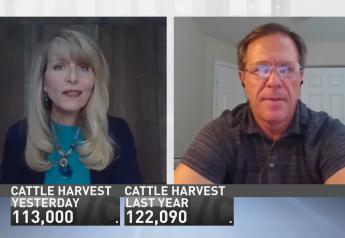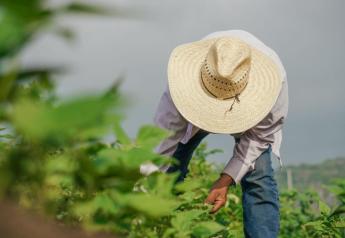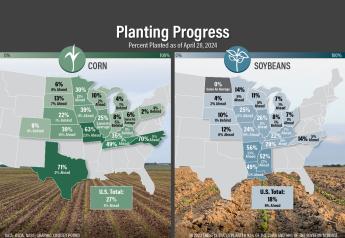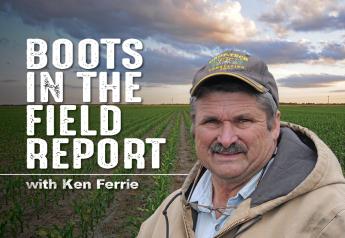A First Generation Virginia Farmer's Path to Success
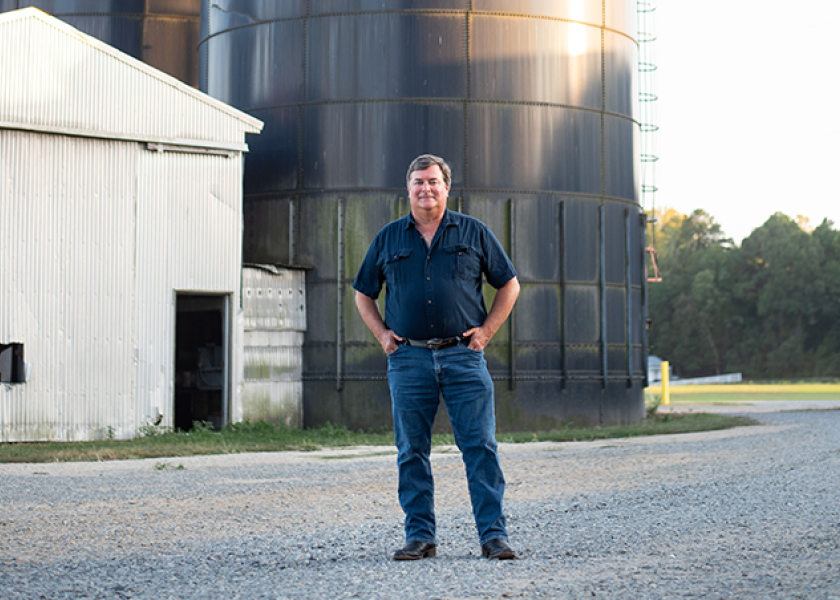
Fifty years ago, a 3-year-old chestnut Thoroughbred stallion named Secretariat won the 1973 Belmont Stakes by a record 31 lengths and in a record-breaking time of 2 minutes and 24 seconds, wowing the 69,138 spectators seated in the stands and sweeping the Triple Crown.
Today, a half-century later, people still watch the big-hearted horse’s thrilling race to victory on YouTube. The records he set that day on the 1.5-mile Belmont Stakes dirt track, often referred to as “the test of the champion,” still stand.
“If you’re feeling kind of down and want to pick yourself up, watch that race. If that doesn’t make you feel good, I don’t know what would,” says Kevin Engel.
The Virginia farmer has a special affinity for the champion colt, nicknamed Big Red, that’s understandable. The legendary racehorse’s birthplace is where Engel got his official start in farming.
“Meadow Stables, the farm where Secretariat was born and raised, is the first land I ever farmed,” he says.
Engel and his family were able to purchase some of the fabled farm just this year, including a picturesque pasture, called Meadow Cove, where Secretariat grazed and played as a youngster.
“It’s got some issues that we want to fix and improve upon, but we’ll get it done,” Engel says. “I’m going to get it back to looking like it did when he was there.”
Improving land and preserving it for future generations is one of Engel’s passions. Some of the farms he works are among the oldest in the U.S., dating back to the 1600s.
His passion for land development and preservation is second only to his love of family and farming with his wife of 38 years, Denise, and their three children, Chris, Casey and Savannah, all of whom work full-time on the operation.
“The best thing is knowing that my family and I and our good staff are all working together to create food and care for the land,” Engel says. “Doing that is amazing, and I appreciate the recognition and respect that’s come along in the process from so many people in our area.”
Starting From Scratch
As a boy, Engel knew he wanted to farm. It was a desire he gained from his father, Carol, who moved the family to Virginia from Illinois in 1949 to be a farm manager.
“I don’t know if it’s a genetic thing, but I think it might be because I’m the same way. You know, people ask me what I do for a hobby, and I say farm because I love it,” Engel says.
“But in my younger years growing up on the farm my dad managed, we quickly realized we needed to have our own operation rather than simply manage other people’s farming business,” he adds.
Engel says they knew the odds were stacked against them because there was no farming operation to pass down.
“I was told so often back then that unless you had a farm, one you came into as a
second or third generation, that it wasn’t possible to start farming from scratch,” he says. “I guess I saw that as a big challenge, and I wanted to try and overcome it.”
With a heart full of try, Engel did just that. Today, he and his family farm 25,000 acres, the equivalent of 37-plus square miles, of corn, soybeans, milo, maize, wheat, barley, canola and rye.
“It has been a privilege to witness young Kevin’s ingenuity at 27 progress to the stature he has attained,” says Don Fritz, former president of a local farm supply company and a reference for Engel, who was a 2023 Top Producer of the Year finalist. “He has guided his operation with consistent planning, utilizing appropriate financial and management skills. Kevin leads this effort with his soft-spoken style and abundance of energy.”
When asked what fuels his ambition, Engel explains, “It’s an internal motivation. I love what I do. I think God put that love in me. I’m just carrying out what He wants me to do.”
Distilling History
Over the years, the Engel family has worked diligently to diversify their operation. They grow white corn that’s used by flour mills. They grow yellow and white food-grade corn that is processed for hushpuppies, grits and various corn baking mixes.
The farm provides soybeans to crush plants for high-protein soymeal and soy oil for bio diesel. Plus, the farm supplies grain to Tyson, Purdue and Smithfield for poultry and pork production.
A distillery in which Engel is a key investor is selling exclusive “Secretariat Bourbon” this year to commemorate the 50th anniversary of Big Red winning the Triple Crown. The bourbon was made from corn also grown by the family.
Finding the Right Partners
None of the success would have been possible, especially early on, he says, without building strong relationships with people and partnering with them.
“I learned when you’re trying to get somewhere in life, you don’t want to be an island to yourself. You’ve got to build relationships, whether that’s with your family, banker, fertilizer supplier or your grain buyers,” he says.
At the same time, he advises not everyone will be the right fit to do business with.
“Don’t waste time trying to build a relationship with somebody who doesn’t want a win-win situation, because that will never work out for you,” he says. “When you work with people who want everyone to win together, great things can be accomplished.”
He says he experienced that early on with his first landlord — a family he started renting ground from in 1985 and still rents land from today, 38 years later.
“They had a lot of land and a lot of opportunities to rent it to established farmers, and there I was just a young kid trying to get started. They had faith in me and my family and took a chance on us,” Engel recalls. “I’ll be forever grateful to them for doing that because without them I don’t think we’d have been able to succeed and grow to the level that we’ve grown to. That family is very dear to me.”
About 95% of the ground the family farms today is rented; they own 2,167 acres. Their Hanover, Va.-based operation includes working with 200-plus landlords in 19 counties in Virginia and three in North Carolina.
Deterrents to Buying Land
The decision not to buy land when he first started farming is one Engel wishes he could go back and change.
“I would tell my younger self to not wait so long, to buy it as soon as possible,” he says. “I spent too many years growing my equipment when I should have been building a land base, even if it wasn’t but buying 10 acres to start with. It would have helped us grow our stability.”
Engel says he convinced himself early on that he wasn’t cut out to buy land. Looking back, he believes a couple of things were in play that discouraged him from making the leap from land renter to landowner.
One was the farm crisis of the 1980s, when many grain farmers saddled with high interest rates lost their land and went out of business. At the same time, many of the farmers he knew who were succeeding were growing their operation by renting ground.
“It put the thought in my head that maybe owning land wasn’t an achievable thing and that renting land was the way to go,” Engel says. “I convinced myself I couldn’t do it.”
Thanks to a relationship with a farmer who believed he could own land, Engel eventually changed his mind.
“He owned a piece of land and wanted me to buy it,” Engel recalls. “He set me straight one day and said, ‘You can do this.’”
That single land transaction led to more and more. Soon, landowners began to seek Engel out to purchase their ground.
“I think part of the reason was because I’d gained a reputation for being able to accomplish a land transaction,” he says. “Some people don’t want the whole public to know they want to sell a piece of property.”
Restoring a Legacy
Then, there were and are those landowners who love their ground and want to sell it to someone who will love it just as much as they do. Engel believes this truth was a big part of the reason he was able to purchase the Meadow Stables parcel of land.
“A lot of people were pulling for us to get it, because they knew I really cared about it, about the history there, and that I would try to restore the land back to its heyday when Secretariat was running around on it,” he says.
But the undertaking is significant. What was once lush pasture on the farm is now overgrown with weeds and brush.
“One of my prayers every morning is that my family and I can transform this land that we got to purchase into land that non-ag people can come out and visit and, you know, enjoy a long walk through nature on the trails, go fishing, pitch a tent with their kids, for them to be on some land that’s preserved and not asphalt and concrete everywhere,” he says.
“To a Midwesterner, that might not sound like that big a deal. But when you’re here in the middle of Richmond and Fredericksburg and Washington D.C., and big warehouses, big data centers, four to six houses per acre going in, it’s a big deal,” Engel says.
Like so many times in the past 38 years, Engel looks beyond the challenge, focusing on the opportunity to diversify his farming operation and partner with other like-minded people in the process of creating something good to benefit all — fueled by a heart full of try. Just like the big-hearted horse, Secretariat, whose winning legacy Engel’s efforts will help preserve for future generations to enjoy.



